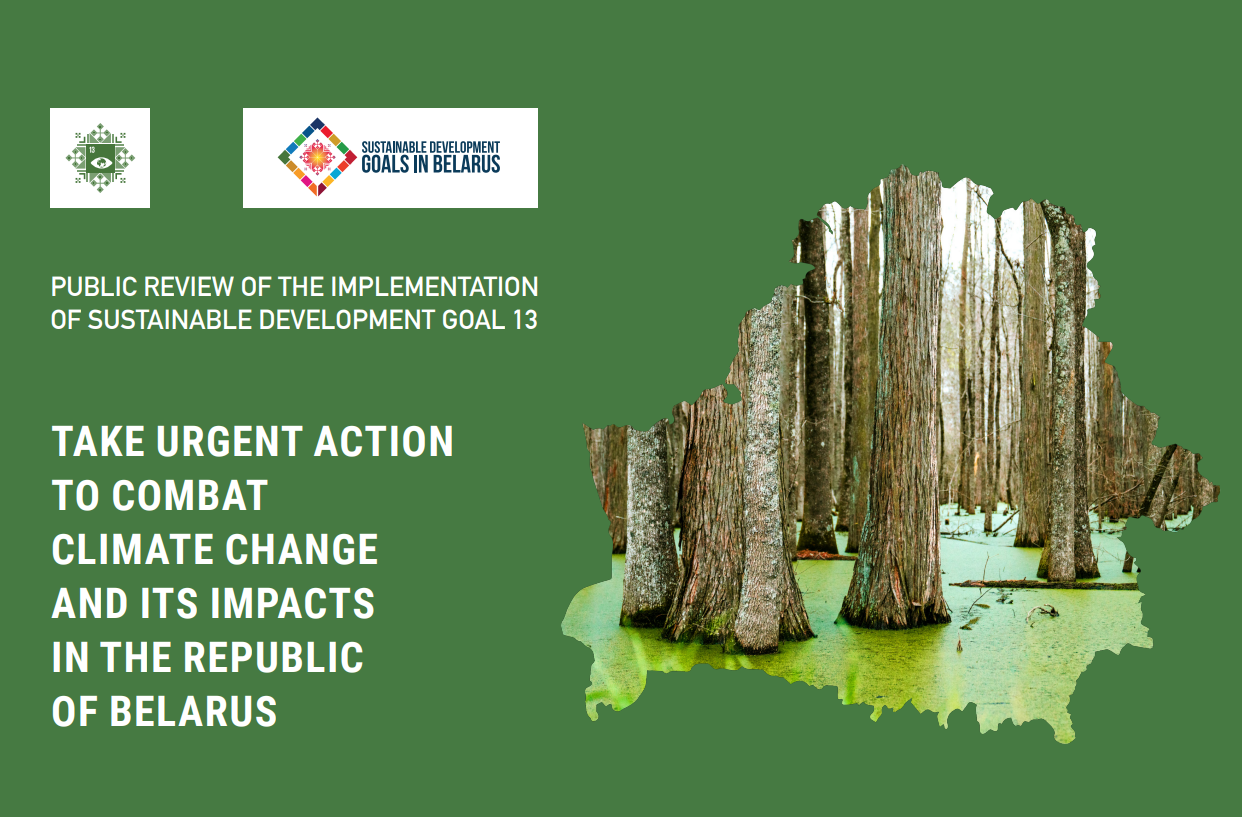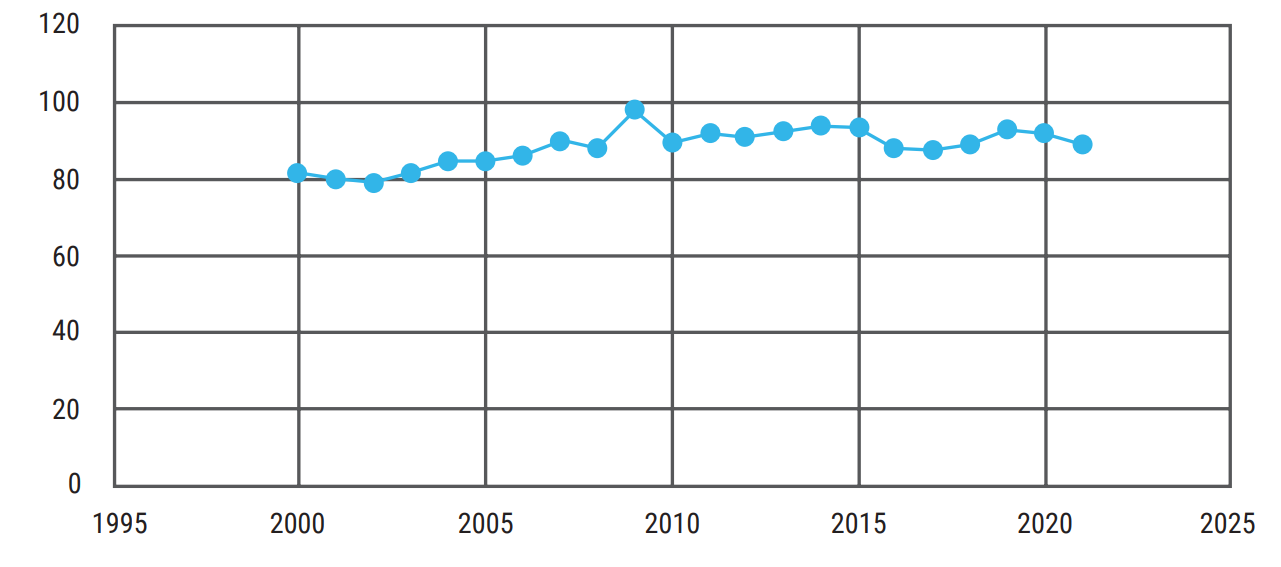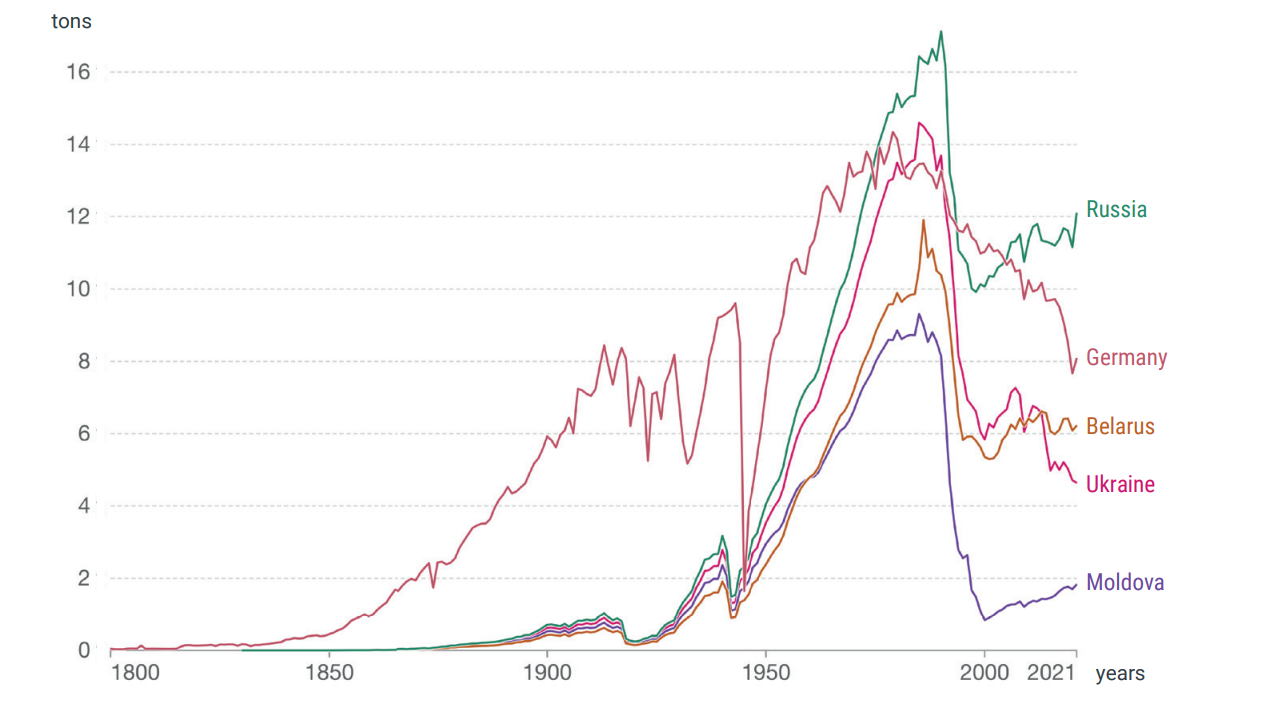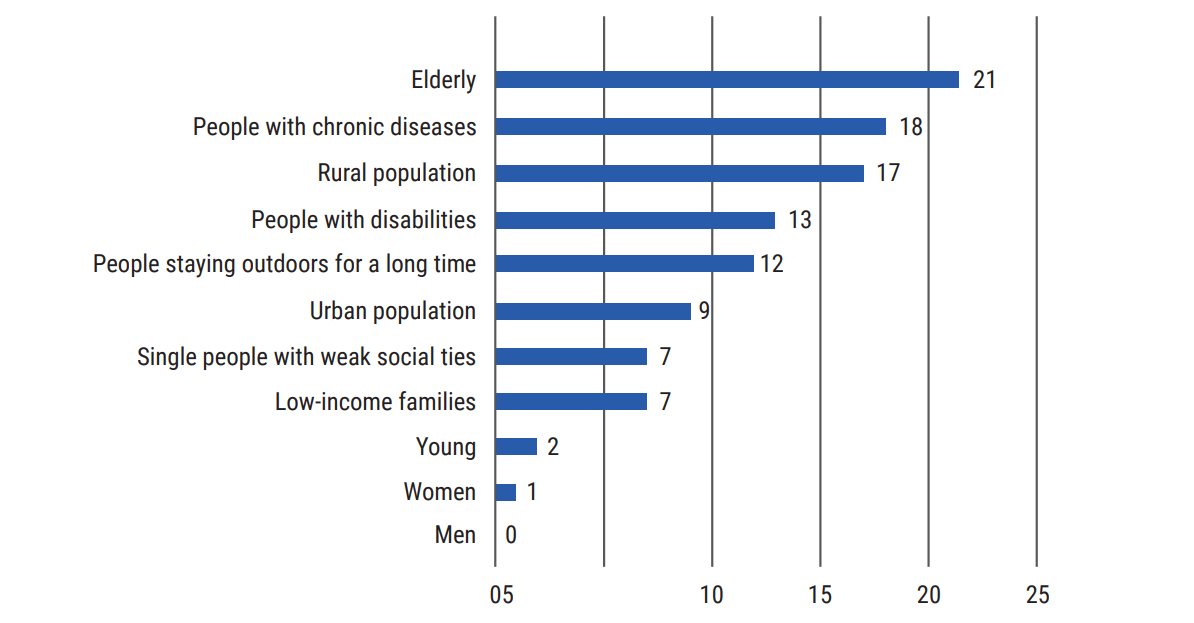
During the 2015 UN General Assembly all UN member countries adopted the 2030 Agenda for Sustainable Development, which committed to achieving 17 ambitious Sustainable Development Goals. Today humanity is in the middle of the path to achieving them. Unfortunately, numerous studies indicate that progress towards SDGs is not sufficient and, if the current pace continues, many of the goals will not be achieved. This, in particular, was discussed at the UN SDGs Summit held in September 2023.
In this regard, it is very important that every country could monitor the SDGs achievement at local level. It is even more important that researchers conducting this monitoring should be as objective as possible, which is best implemented in the format of public monitoring (review) of the process of the SDGs achievement.
In 2022-2023, a group of Belarusian experts prepared a series of reviews on various SDGs within the framework of the project “Institutional integration of the 2030 Agenda in Belarus and other Eastern Partnership countries”, implemented by the Dortmund International Education Center supported by the Federal Ministry of Economic Cooperation and Development (BMZ) and the German Society for International Cooperation (GIZ).
We bring to your attention Public review of the Implementation of Sustainable Development Goal 13: Take Urgent Action To Combat Climate Change and Its Impacts in the Republic of Belarus.
The importance of achieving this SDG in Belarus is due to the fact that from the late 70s to the present time, the average annual air temperature in Belarus has been growing by an average of 0.6 degrees per 10 years. Almost all years from 2010 to 2021 turned out to be noticeably warmer than the country's climate norm. Global climate change has already led not only to an increase in the average annual temperature in Belarus by 1.4 degrees from 1989 to 2020, but also to the emergence of previously atypical phenomena: tornadoes, hurricanes, and an increase in the number of extreme events associated with precipitation.
In section 1 of this review, the authors examine the targets of SDG 13 and compare national indicators for achieving SDG 13 with a set of international indicators.
The authors, in particular, note that the SDG 13 indicators approved in Belarus practically do not reflect the impact of climate change on the most weather-dependent and vulnerable sectors, such as agriculture and forestry, healthcare, access to water resources, energy and transport. The main focus of existing indicators is on the consequences of emergency situations and disaster risk reduction. This approach distinguishes Belarus from the accepted practices of the European Union and the Russian Federation.
Section 2 of this review is devoted to assessing the framework conditions for the implementation of SDG 13, which include Belarus’ participation in global climate agreements, international cooperation on climate change issues, legislative and policy documents in this area, as well as institutional cooperation and the role of non-govermental associations.
In particular, it is noted that since 2000 the Republic of Belarus has been a Party to the United Nations Framework Convention on Climate Change (UNFCCC), since 2005 to the Kyoto Protocol and since 2016 to the Paris Agreement to the UNFCCC. Since 2017, the country has approved and is implementing the “Action Plan for the implementation of the provisions of the Paris Agreement to the UNFCCC.” Thus, work on SDG 13 at the national level is carried out mainly within the framework of the listed international agreements.
Given the rapidly narrowing window of opportunity to prevent catastrophic levels of climate change, many countries, regions and organizations are setting themselves the goal of achieving carbon neutrality - zero balance of anthropogenic emissions and their absorption - in the shortest possible time frame within their capabilities. Most of the 137 countries that announced such a goal rated 2050 as a realistic target; some countries - from 2030 to 2040; two countries have already achieved climate neutrality (Bhutan and Suriname). Against this background, the formal commitments of the Republic of Belarus to reduce emissions, which actually imply their moderate growth, and the lack of a vision to achieve climate neutrality, are not ambitious.

Emissions of greenhouse gases (2000-2021) in Belarus, million tons of СО2 eq
It should be considered positive that in addition to the obligations of the Republic of Belarus within the framework of intergovernmental negotiations under the auspices of the UN, there is a fairly active participation of the territorial administrations of the Republic of Belarus in the voluntary international initiative Covenant of Mayors for Climate and Energy (Covenant of Mayors). 59 cities and regions of Belarus (this is almost half of all 118 local administrations of the country) have become signatories with obligations to reduce emissions by at least 30% by 2030 and adapt to climate change, of which 24 have developed Action Plans for sustainable energy development and climate change. 2030 (SECAPs) and submitted them for verification to the Secretariat of the Covenant of Mayors. Many signatories have begun implementing SECAPs and 7 of them have already provided reports on the results.
It is important to note the large volume and scope of support for Belarus in achieving the SDGs from the international community, which was provided in the form of technical assistance, grants, loans, credits and other forms of cooperation. Moreover, support was provided at different levels - both to government bodies and municipal infrastructure operators, and to business and civil society.
In this regard, the closure of most grant and investment programs in 2021-2023 along with the negative impact of sanctions on the Belarusian economy, has led to an acute shortage of resources for climate protection activities. In addition, the potential for activities on SDG 13 is declining due to the ongoing change of personnel in relevant government bodies and local governments; the liquidation of a large number of non-profit organizations working on the topics of ecology, climate and regional development; departure of a number of qualified experts abroad.
Section 3 of the review presents an assessment of the SDG 13 achievement in Belarus, based on data on the achievement of indicators, as well as in comparison of Belarus with other countries (Ukraine, Russia, Moldova, Germany). Particular attention is paid to the issues of taking into account the impact of climate change on vulnerable groups of the population.
It is noted that according to the Climate Change Performance Index (CCPI), the activities of Belarus are assessed at a rather low level: in 2022 the country is in 48th position in the ranking (out of 63 countries), in 2023 it rose to 2 positions and took 46th place. This result is due to the low ranking in the renewable energy category and in the climate policy category. This is explained by the lack of long-term goals in Belarus to reduce greenhouse gas emissions, as well as a low-carbon development strategy and effective cross-sectoral legislation on the production of renewable energy. According to the National Action Plan for the Development of a Green Economy in the Republic of Belarus for 2021–2025, “the current deterioration of Belarus’ position is largely due to the more active climate policies of other countries.”
At the same time, Belarus is a country with an average level of emissions. For example СО2 emissions per capita in Belarus are lower than in Russia or Germany, but higher than in Ukraine or Moldova.

СО2 emissions per capita (Land use change not included) by country
Experts draw attention to the fact that the main driver of climate education and awareness (task 13.3) in 2020-2022 there were non-profit organizations with the support of international projects. Thus, their absence in the current conditions can lead to a decrease in activity in this direction. In addition, increasing geopolitical confrontation is leading to a decrease in attention to the problem of climate change.
The authors of the study note the importance of taking into account the impact of climate change on vulnerable groups of the population. For this purpose, they conducted a survey of the expert community about which groups of citizens in Belarus are most vulnerable to climate change and its consequences. The survey involved 30 people representing the environmental, education, sustainable development, mobility and social sectors.

Population groups most vulnerable to climate change and its consequences in Belarus, according to the expert community
According to experts, vulnerable categories of the population to the consequences of climate change include a very wide range of people, but each of them is affected by climate change differently, which must be taken into account when developing adaptation measures. To this end, more detailed analysis of climate impacts is needed, disaggregated by gender, age, income, health status and other factors.
Section 4 presents recommendations for improving progress in implementing SDG 13 as an integral part of country policies on greenhouse gas emissions mitigation and climate change adaptation, which are grouped in three areas:
- improving climate change mitigation and adaptation policies;
- recommendations for strengthening the capacity of non-governmental organizations (NGOs) to achieve SDG 13;
- increasing the adaptive potential of vulnerable groups of the population.
To summarize, it can be noted that the results of the review show that Belarus has significant potential to achieve SDG 13. However, to implement it, it is necessary to set more ambitious national goals, pay attention to and track not only indicators for which there are significant achievements, but also those for whom progress is insufficient, finally, it is very important to involve all stakeholders in the processes of achieving the SDGs, in particular representatives of non-profit organizations and civil society.
The full text of the review is available here.
The short version of the review is available here.
The text on Russian language is available here.
Other public reviews prepared by Belarusian experts can be found in the “SDG Monitoring” section of the website.
